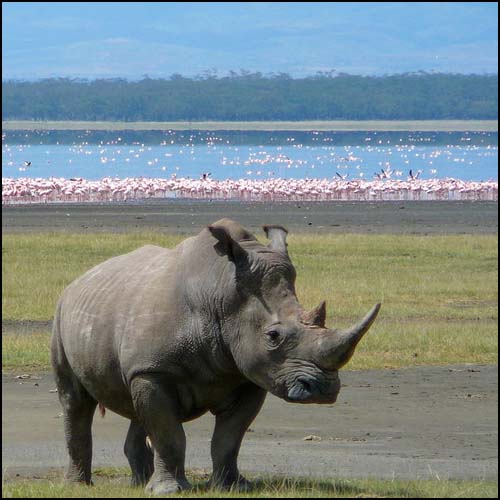 To blatantly plagiarize Ogden Nash, jail time for exporting rhinoceros is not something very prepocerous. Or, to put it in another less poetic way, exporting libation cups made from rhinoceros horns to China is not a smart idea. Â This was a lesson learned the hard way by New York antiques dealer Qiang Wang who pleaded guilty yesterday in federal court to various charges arising from his exports of elephant ivory and the rhinoceros horns to his co-conspirators in China.
To blatantly plagiarize Ogden Nash, jail time for exporting rhinoceros is not something very prepocerous. Or, to put it in another less poetic way, exporting libation cups made from rhinoceros horns to China is not a smart idea. Â This was a lesson learned the hard way by New York antiques dealer Qiang Wang who pleaded guilty yesterday in federal court to various charges arising from his exports of elephant ivory and the rhinoceros horns to his co-conspirators in China.
The criminal information that served as a basis for the plea reveals that, among other things, Wang purchased from a New York auction house three rhinoceros horn libation cups for $1,159,500. It is not clear whether these items made it to China, but it is alleged that other items containing elephant ivory and rhinoceros horn did. Wang apparently realized that his exports were problematic because, according to the information, he falsified the export documents to conceal the true nature of the shipments. This was not the case of some small time antiques dealer confused by a welter of confusing federal rules and regulations.
The exports were violations of the Lacey Act and the Endangered Species Act. Not surprisingly, the second count of the information charged a violation of 18 U.S.C. § 554, the “anti-smuggling” provision which is doubtlessly familiar to regular readers of this blog and which prohibits the export of any item “contrary to any law or regulation of the United States.” The reason for the smuggling charge, no doubt, is because 18 U.S.C. § 554 provides for a maximum imprisonment of 10 years. The Endangered Species Act and the Lacey Act only provide for prison terms, respectively, of one year and five years.
 Permalink
Permalink
Copyright © 2013 Clif Burns. All Rights Reserved.
(No republication, syndication or use permitted without my consent.)

 Posted by
Posted by  Category:
Category: 

